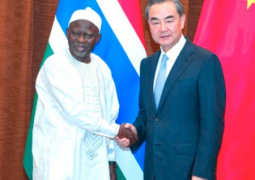According to reports, Church officials tried to relay a climate of calm confidence in the running of a 2,000-year-old institution, but the decision could lead to uncertainty in a Church already besieged by scandal for covering up sexual abuse of children by priests.
In his announcement, the pope said “in order to govern ... both strength of mind and body are necessary, strength which in the last few months has deteriorated in me to the extent that I have had to recognise my incapacity to adequately fulfill the ministry entrusted to me.”
Our point of contention here is the need for leaders everywhere, in particular African leaders, to learn from this giant move, especially when the time is up for them to go.
While many blame the continent’s woes on the West, most Africans said one of the leading problems faced by Africa is power-struggle. They believe African leaders’ failure to hand over power at the end of the term or even if they are terribly sick and unable to govern is a major problem.
The scourge of leaders clinging on to power has blighted the continent for a very long time, and has never been anything but destructive.
In the spirit of pan-Africanism, leaders must be urged to do what is best for their people, and not just themselves.
The failure of our leaders to hand over power at the end of the term is a major problem. We believe there is the need for our leaders to work for the best interest of the African continent.
We have been seeing situations in Africa where power-hungry leaders close their eyes to the destruction of their countries, as they cling on to power.
Mandatory maximum terms are the obvious solution to this issue. They are in place all over the world and have proved to be very effective in ensuring that no one person holds on to power for too long. It ensures fresh ideas and young energetic leaders get to serve the people.
With mandatory terms in place, any African leader who would not agree to sign up would be making clear to the whole continent that their own lust for power was uppermost in their thoughts as opposed to the good of their people.
Change in this area must come soon, if we are to continue building a unified and highly developed continent.
We hope our leaders will learn from this move.




